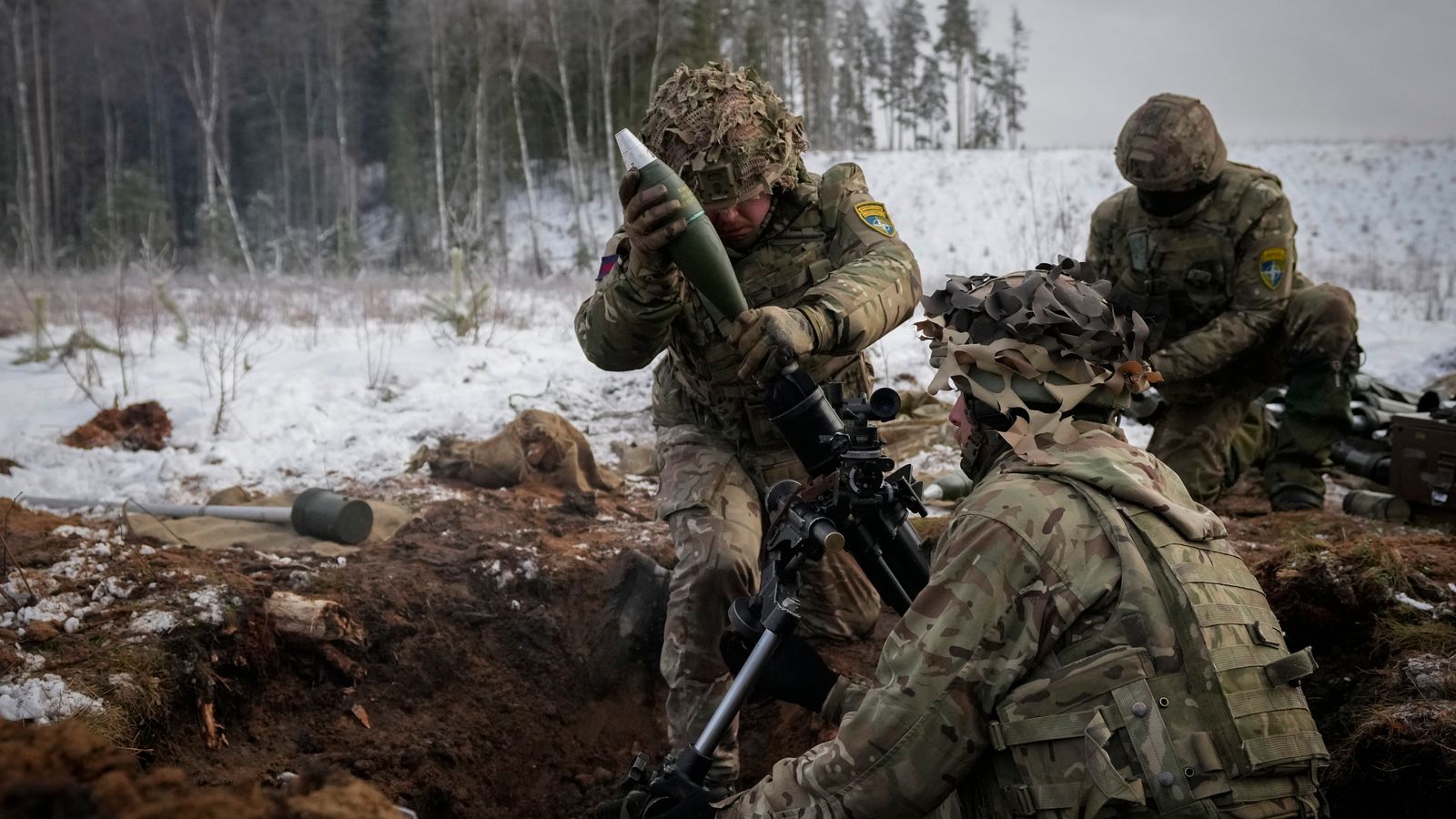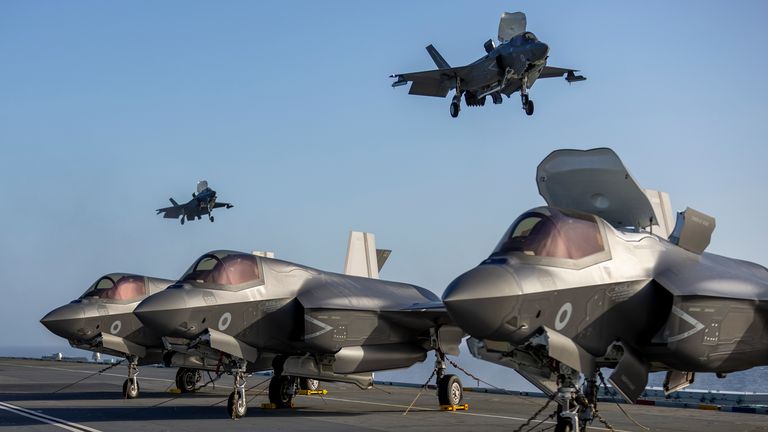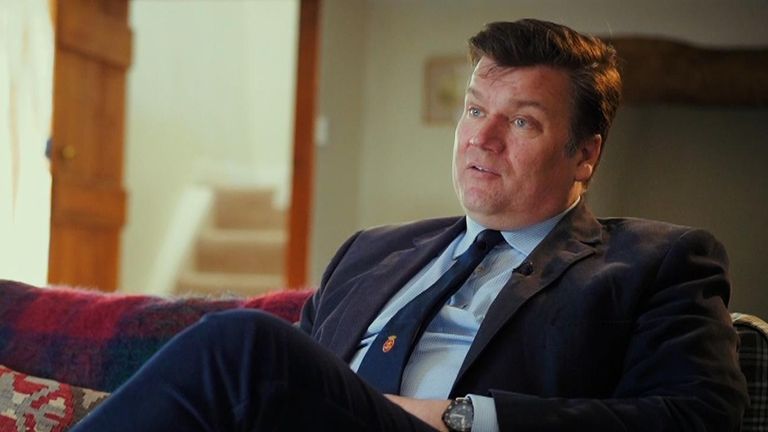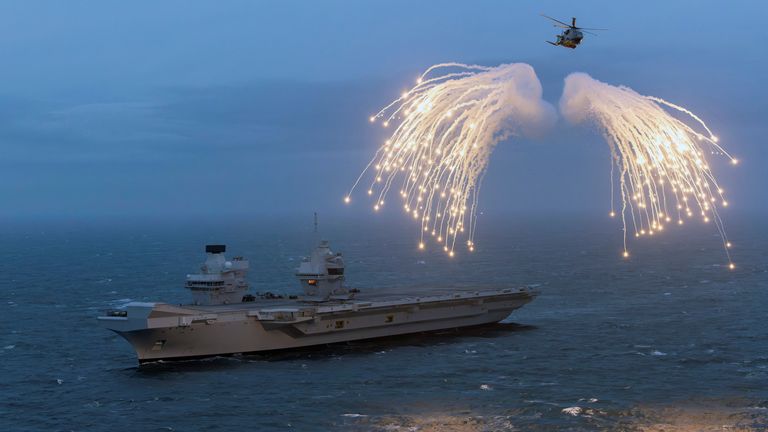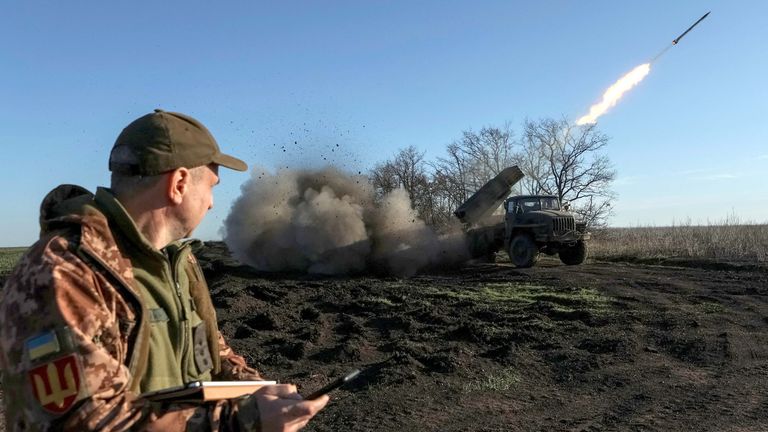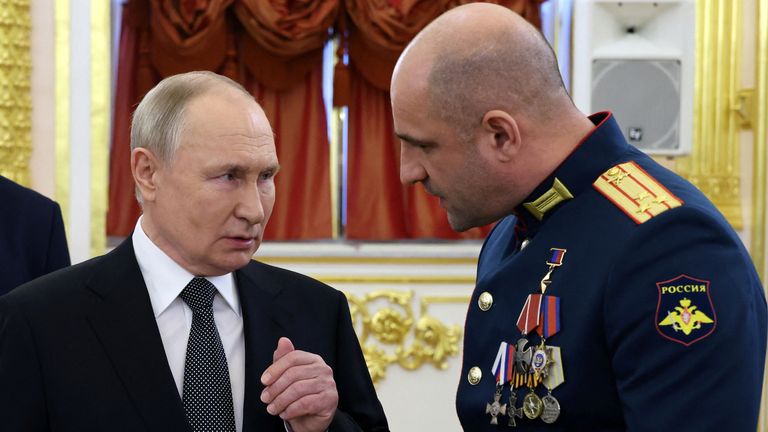In a world that has grown more dangerous in recent years, the nightmare scenario of a Third World War is in the public consciousness.
Earlier this year, UK Defence Secretary Grant Shapps warned the world could be engulfed by wars involving China, Russia, North Korea and Iran in the next five years, and said we are moving “from a post-war to pre-war world”.
The relief felt at the end of the Cold War in the late ’80s has been replaced with increasing alarm at Russia’s invasion of Ukraine, and there is outcry at the humanitarian catastrophe in Gaza.
Sky News spoke to experts about whether World War Three is a possibility – and if we really are living in a “pre-war world”.
Here’s what they had to say…
‘The international order is fraying’
Hugh Lovatt, senior policy fellow at the European Council on Foreign Relations thinktank
“The reassuring news is we are not heading towards the Third World War,” he says.
While there are conflicts in tensions in various theatres – Ukraine, the Middle East, Asia-Pacific – these are all “separate and not connected”, according to Mr Lovatt.
“The Gaza war has been going on for six months and is driving regional escalation – Iran’s retaliation against Israel is just the latest example of this.”
There are implications for the international community, including the UK, for example in terms of the Houthi attacks on Red Sea shipping and the impact that has on global trade.
There is, he says, a risk that British troops become sucked into a conflict in the Middle East.
“We need to see these risks in a certain context which is they do impact the UK but they are not existential risks.
“This is also happening at a time when the international order is fraying, is under considerable strain. This is something that we should be very troubled by.”
‘More likely now than at any time since the end of the last world war’
Deborah Haynes, Sky News security and defence editor
Given the scale of the turmoil shaking parts of the globe – in particular in Ukraine and the Middle East – the potential for a spark that ignites World War Three already exists.
That does not mean an escalation to global confrontation is inevitable but it is arguably more likely now than at any time since the end of the last world war.
A decision by Iran to launch an unprecedented barrage of missiles and drones against Israel has just raised the stakes even higher.
Israel has vowed to respond though its allies, including the UK and the US, are urging restraint especially as they helped ensure the vast majority of incoming munitions were blasted out of the sky before they could cause harm on the ground.
Should Israel choose to retaliate, the crisis could yet be contained if its return strike is limited and any further Iranian response triggered by such an attack is also curbed. But they are two big ifs.
Read more:
Sunak facing further calls to proscribe IRGC
Cameron urges Israel not to retaliate to Iran
What impact would proscribing Iran’s IRGC as a terrorist organisation have?
Also, every time even limited military action is taken there is the risk of error or miscalculation that leads to uncontrolled escalation to regional war.
What happens in the Middle East also has a global impact, especially because Iran is backed by Russia and has close ties to China, while Israel’s strongest allies, led by the US, are predominately Western nations.
It means the crisis pitches authoritarian states against democracies – just as the concurrent war in Europe does.
Despite vows of Western support, Russia is slowly gaining ground in Ukraine. Western allies are failing to deliver the weapons and ammunition the Ukrainian military needs – leading to an almost inevitable retreat unless the balance of military strength on the ground changes.
Success by Vladimir Putin in Ukraine may embolden the Russian president, whose country is on a “total war” footing, to test the strength of the NATO alliance by invading a member state.
Again, this would create a direct war between authoritarian Moscow, armed by Iran, North Korea and also with assistance from China, against the West’s NATO alliance.
Evidence that military force has proved effective against Western powers could further harden China’s resolve to make good on a pledge to reunite the island of Taiwan with the mainland even if that means invading.
Such a move could also plunge Asia into conflict, again along the same dividing line of authoritarian states versus democracies.
‘Diversion of attention’
Edward R Arnold, senior research fellow at the Royal United Services Institute (RUSI) thinktank
“I think people really need to understand what the North Atlantic Treaty is, which is the foundation of NATO,” he says.
Mr Arnold argues that the public seem to believe that NATO’s Article 5 (the principle that an attack on one member is treated as an attack on all) is automatic.
“That’s not the case or certainly does not have to be the case… escalation is not automatic and there are measures to de-escalate things.”
Looking to the situation in Ukraine, where NATO has been providing weapons and assistance, he says the risk of a miscommunication between the West and Russia has increased.
“The chances of a miscommunication where one ship accidentally fires on another, I think that goes up.
“We need to be really prepared about what that means.”
He also argues that in some ways the threat of a wider conflict with Russia is reducing at the moment. Kremlin forces are starting to make progress in Ukraine, but the quality of their troops has been degraded significantly such that they are not in a position to present a threat to NATO.
Mr Arnold continued: “Vladimir Putin will be looking pretty closely at what happens in the Middle East: how each nation responds and just the diversion of attention (from Ukraine).
“It’s all helping Putin at the moment because while focused on the Middle East we are not as focused as we have been on Ukraine.”
‘Donald Trump could undermine NATO’
Dr Luigi Scazzieri, senior research fellow at the Centre for European Reform thinktank
“It depends on your definition of World War Three. A possible conflict between Iran and Israel has the potential to expand into a major military conflagration in the Middle East, with global implications.
“The US would almost certainly be drawn in on Israel’s side and other Western countries, including the UK, may do the same to a lesser extent.
“But their involvement would be limited and this would not be World War Three, not least as Russia can ill-afford to support Iran and because China is unlikely to.
“The impact of such a conflict on Europe would be primarily economic, through further disruption in energy flows and trade.
“The primary pathway to a World War Three scenario remains a direct Western clash with Russia. That scenario will be more likely if Donald Trump wins and undermines NATO, tempting Vladimir Putin into an attack on the Baltics.
“A clash with Russia would also be quite likely if Western forces become involved in supporting Ukraine in frontline combat roles.”
